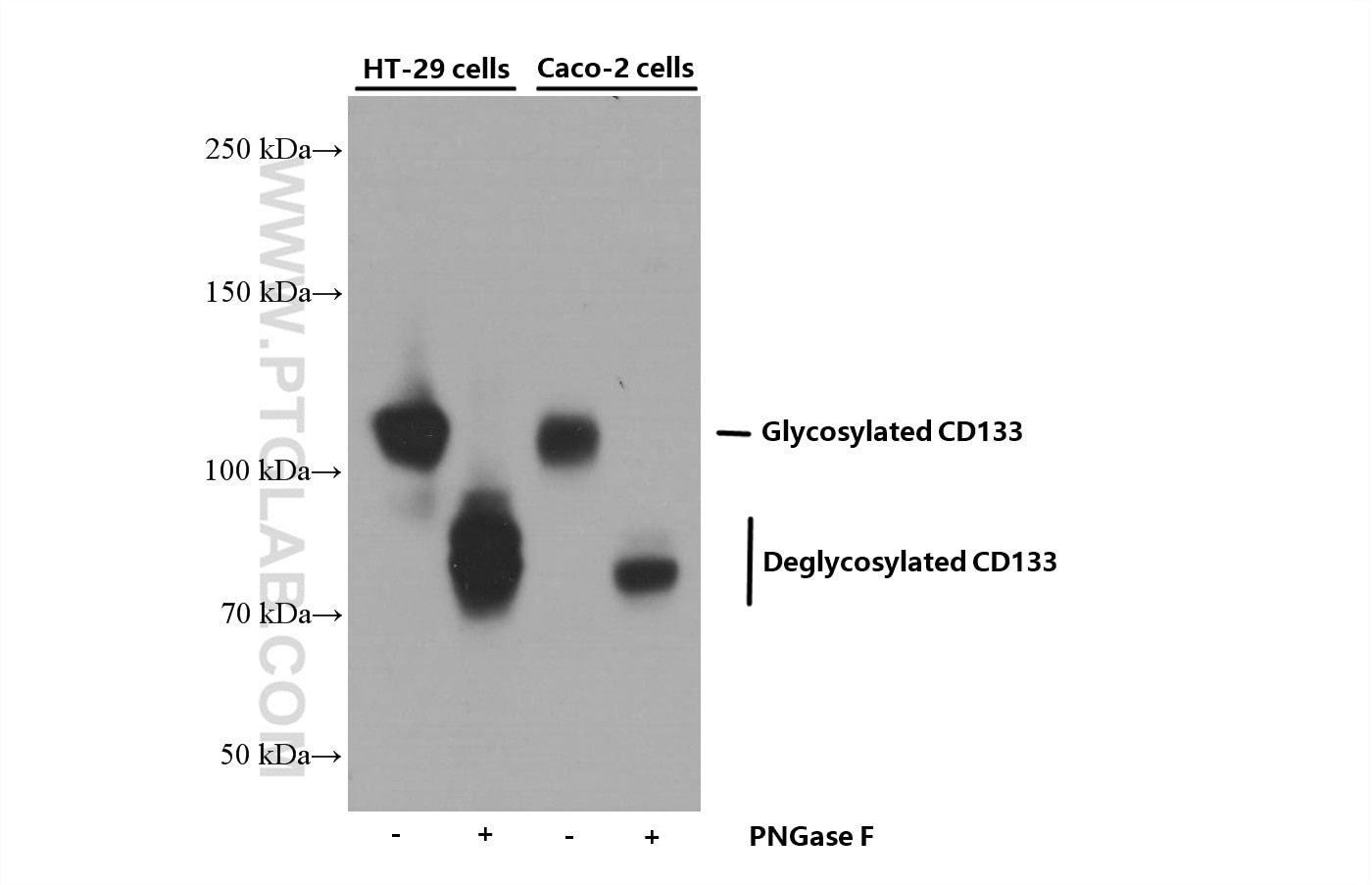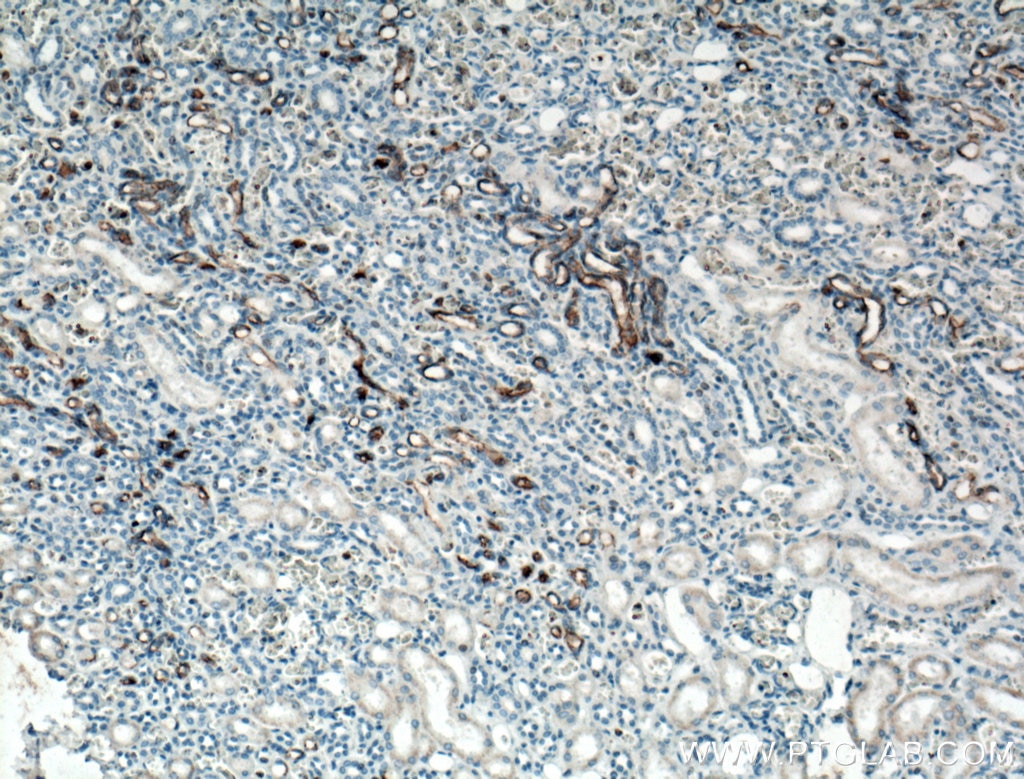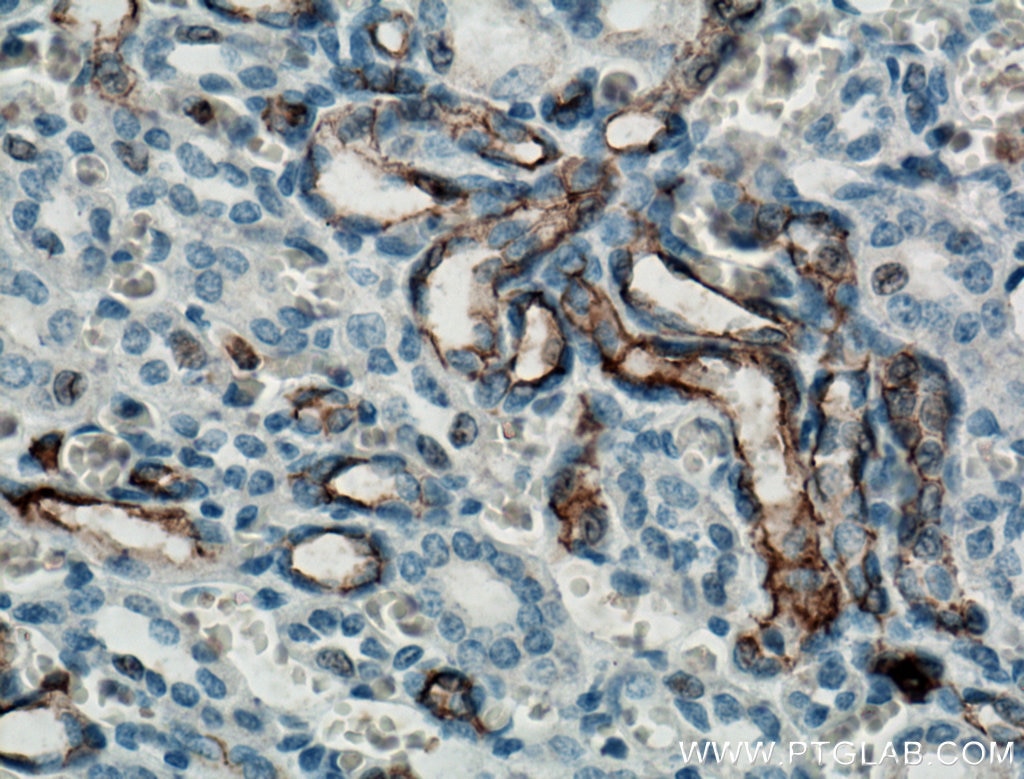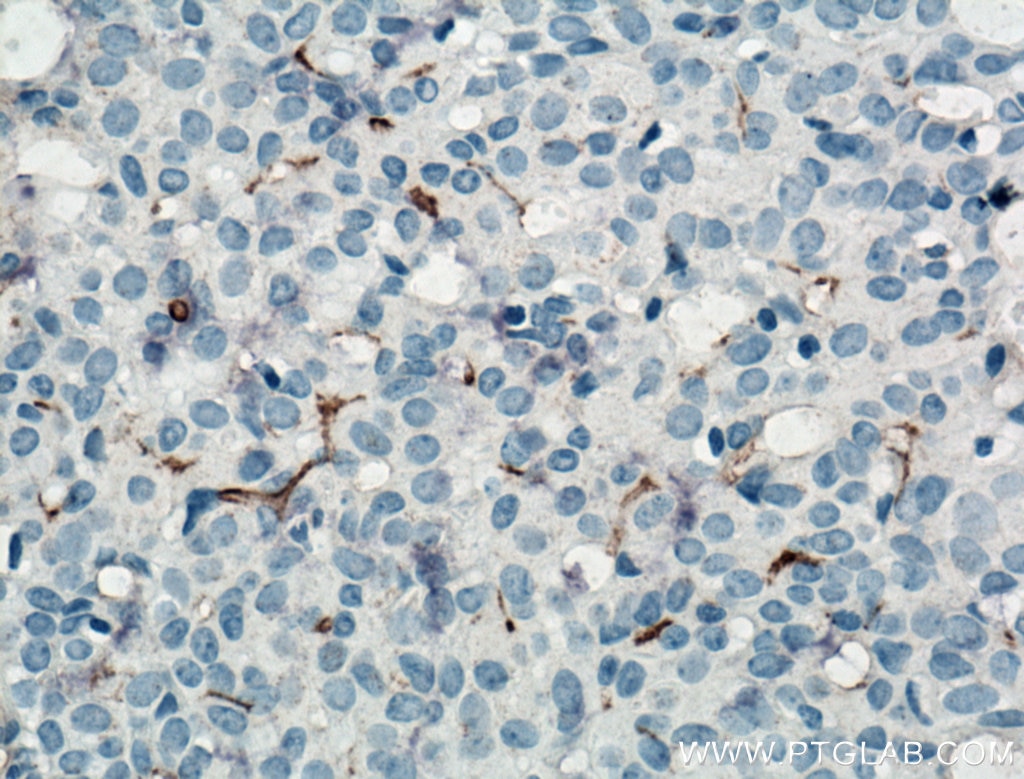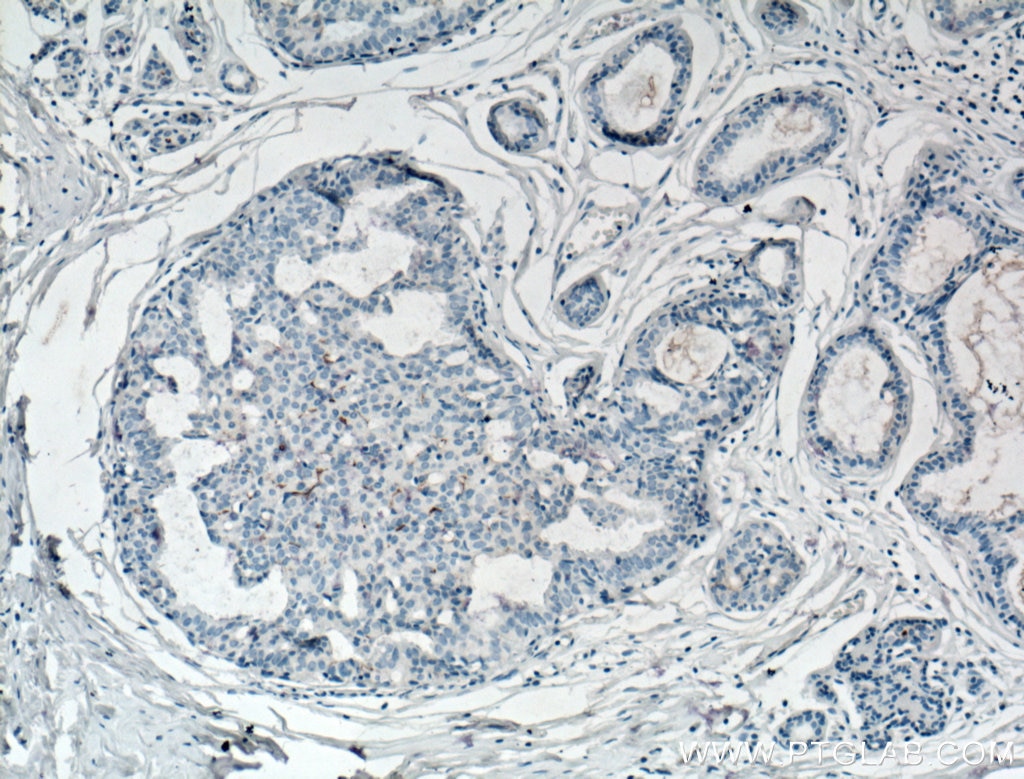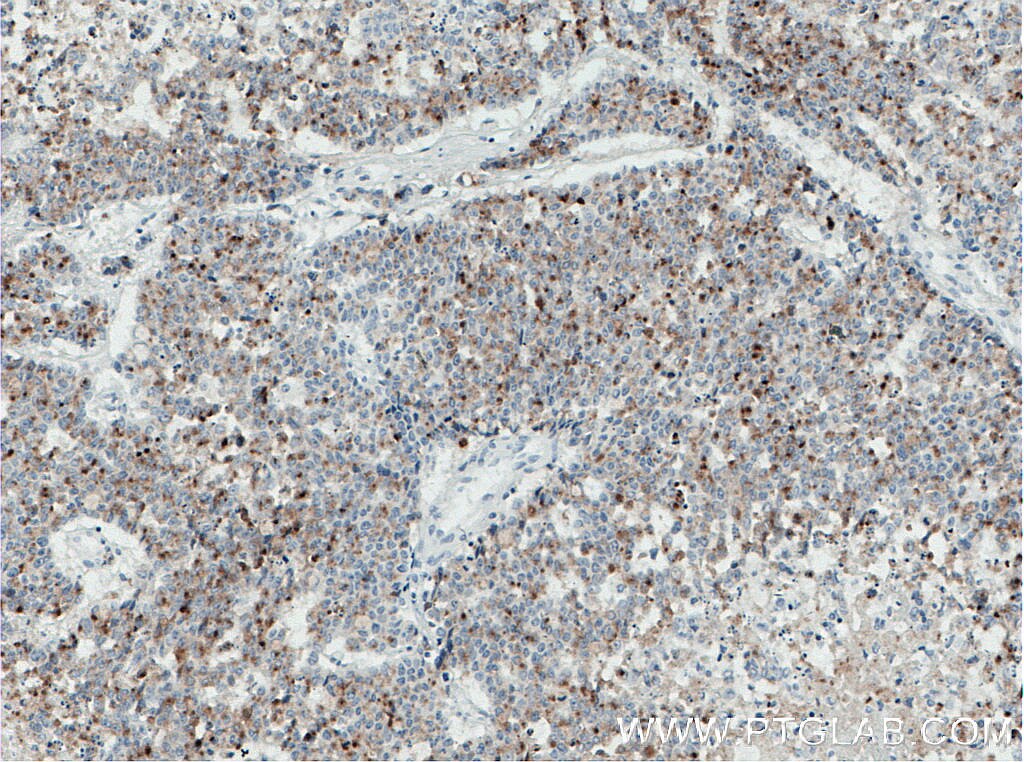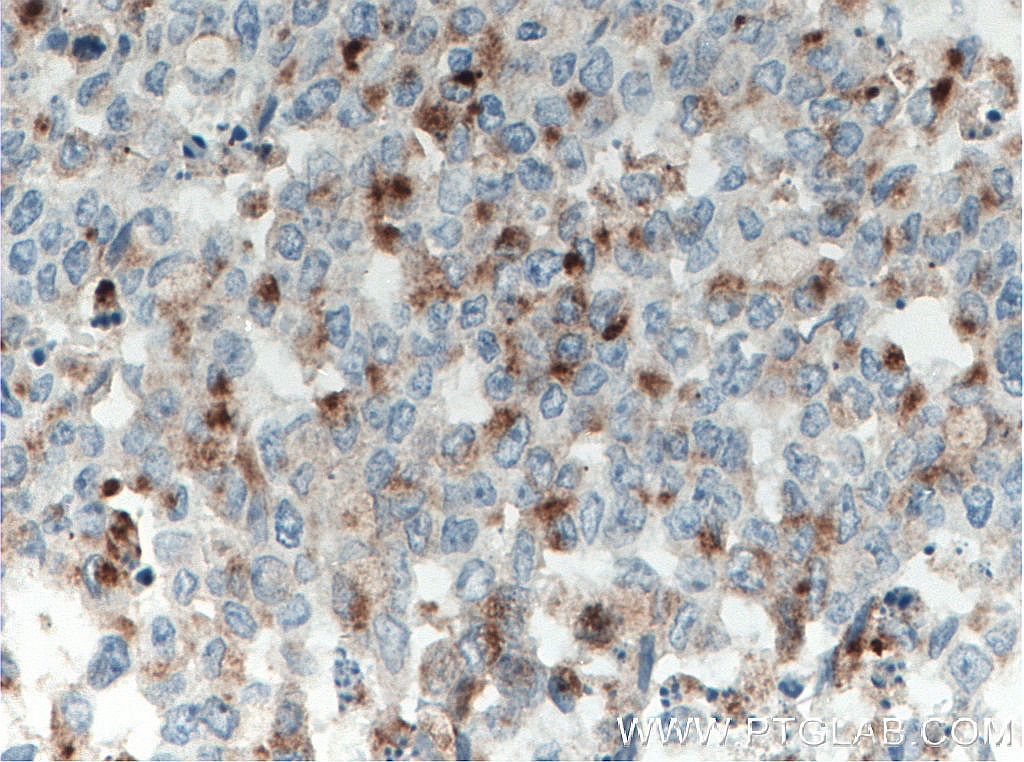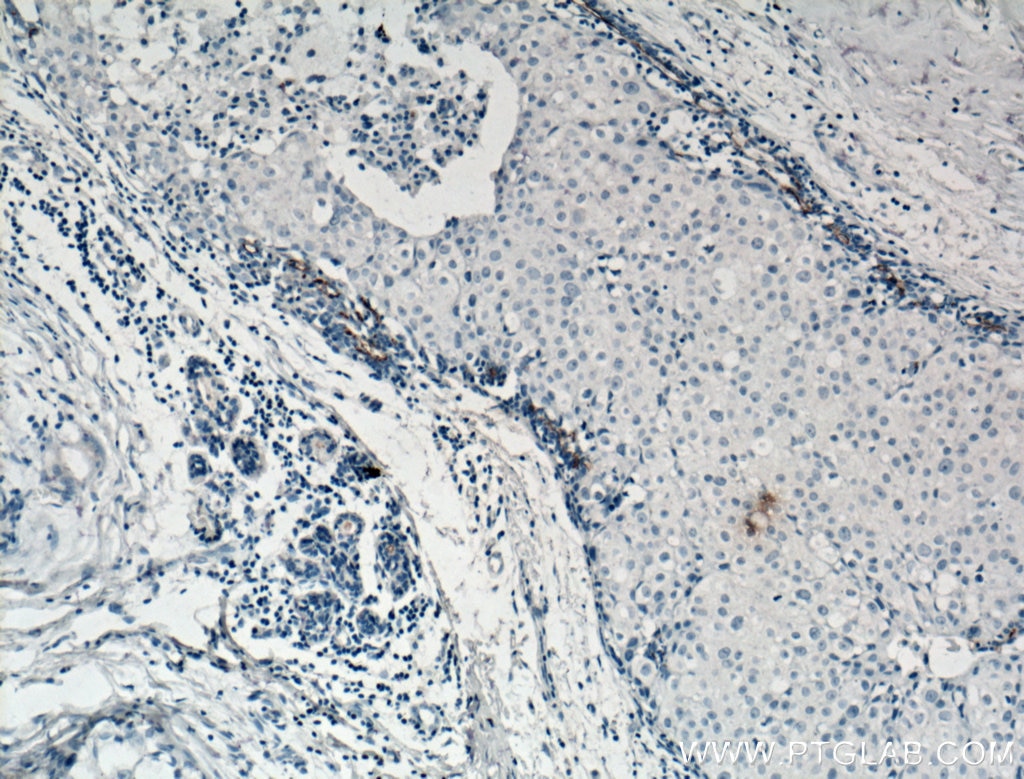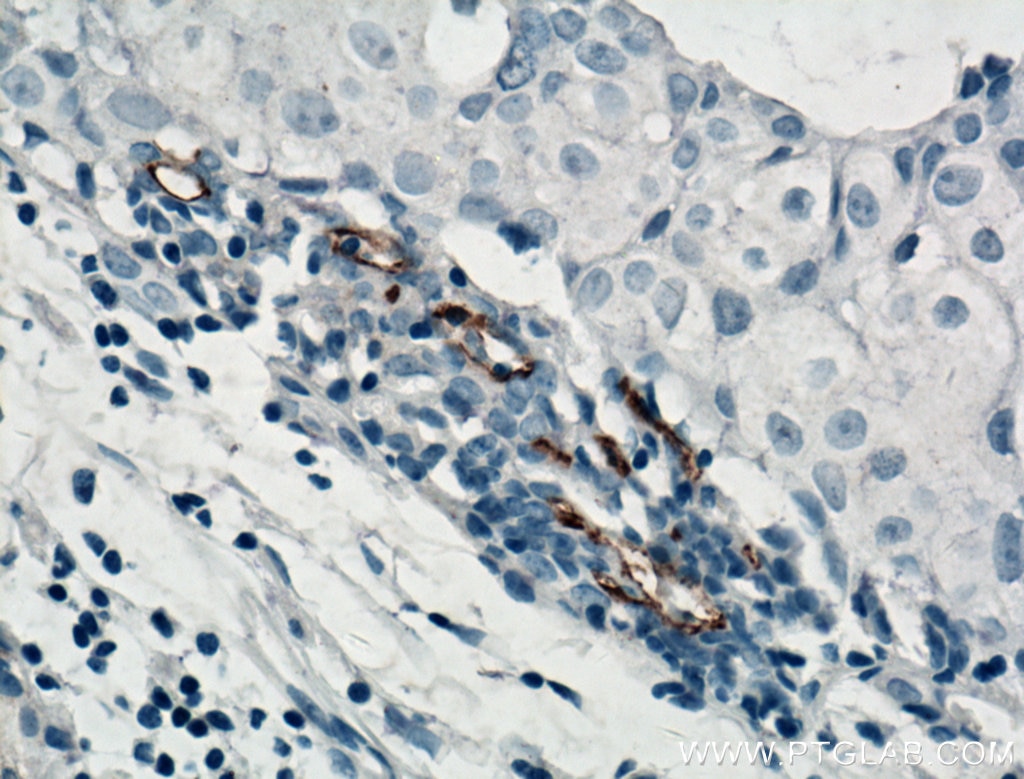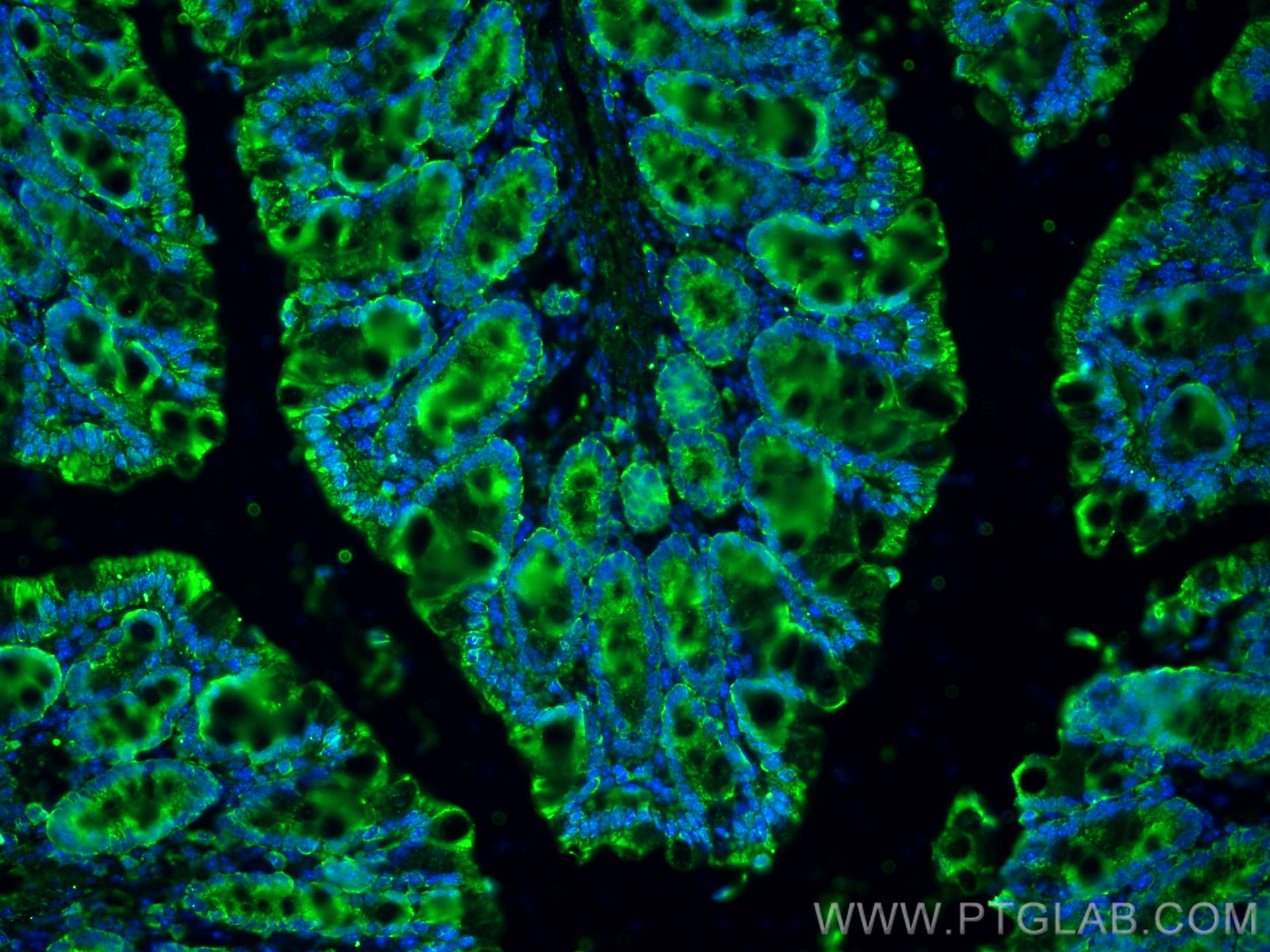CD133 Monoklonaler Antikörper
CD133 Monoklonal Antikörper für WB, IHC, IF-P, ELISA
Wirt / Isotyp
Maus / IgG1
Getestete Reaktivität
human und mehr (2)
Anwendung
WB, IHC, IF-P, ELISA
Konjugation
Unkonjugiert
CloneNo.
2B8A2
Kat-Nr. : 66666-1-Ig
Synonyme
Geprüfte Anwendungen
| Erfolgreiche Detektion in WB | HT-29-Zellen, Caco-2-Zellen |
| Erfolgreiche Detektion in IHC | humanes Nierengewebe, humanes Mammakarzinomgewebe, humanes Kolonkarzinomgewebe Hinweis: Antigendemaskierung mit TE-Puffer pH 9,0 empfohlen. (*) Wahlweise kann die Antigendemaskierung auch mit Citratpuffer pH 6,0 erfolgen. |
| Erfolgreiche Detektion in IF-P | Maus-Kolongewebe |
Empfohlene Verdünnung
| Anwendung | Verdünnung |
|---|---|
| Western Blot (WB) | WB : 1:2000-1:10000 |
| Immunhistochemie (IHC) | IHC : 1:500-1:2000 |
| Immunfluoreszenz (IF)-P | IF-P : 1:400-1:1600 |
| It is recommended that this reagent should be titrated in each testing system to obtain optimal results. | |
| Sample-dependent, check data in validation data gallery | |
Veröffentlichte Anwendungen
| KD/KO | See 1 publications below |
| WB | See 40 publications below |
| IHC | See 16 publications below |
| IF | See 20 publications below |
| ELISA | See 1 publications below |
Produktinformation
66666-1-Ig bindet in WB, IHC, IF-P, ELISA CD133 und zeigt Reaktivität mit human
| Getestete Reaktivität | human |
| In Publikationen genannte Reaktivität | human, Maus, Ratte |
| Wirt / Isotyp | Maus / IgG1 |
| Klonalität | Monoklonal |
| Typ | Antikörper |
| Immunogen | CD133 fusion protein Ag13327 |
| Vollständiger Name | prominin 1 |
| Berechnetes Molekulargewicht | 97 kDa |
| Beobachtetes Molekulargewicht | 115 kDa, 80-90 kDa |
| GenBank-Zugangsnummer | BC012089 |
| Gene symbol | CD133 |
| Gene ID (NCBI) | 8842 |
| Konjugation | Unkonjugiert |
| Form | Liquid |
| Reinigungsmethode | Protein-G-Reinigung |
| Lagerungspuffer | PBS with 0.02% sodium azide and 50% glycerol |
| Lagerungsbedingungen | Bei -20°C lagern. Nach dem Versand ein Jahr lang stabil Aliquotieren ist bei -20oC Lagerung nicht notwendig. 20ul Größen enthalten 0,1% BSA. |
Hintergrundinformationen
CD133, also known as PROM1 (prominin-1) or AC133, belongs to the prominin family. CD133 is a transmembrane glycoprotein with an NH2-terminal extracellular domain, five transmembrane loops and a cytoplasmic tail. The expression of CD133 has been reported in hematopoietic stem cells, endothelial progenitor cells, neuronal and glial stem cells, suggesting the potential role of CD133 as a cell surface marker of adult stem cells. CD133 has also been reported as a marker of cancer stem cells in various human tumors. CD133 is a highly glycosylated protein with an apparent molecular weight of 115-120 kDa. After the treatment of the lysates with glycosidase, CD133 shifted to a protein with an apparent molecular weight of 80-90 kDa (PMID: 23150174; 20068153).
Protokolle
| PRODUKTSPEZIFISCHE PROTOKOLLE | |
|---|---|
| WB protocol for CD133 antibody 66666-1-Ig | Protokoll herunterladen |
| IHC protocol for CD133 antibody 66666-1-Ig | Protokoll herunterladenl |
| IF protocol for CD133 antibody 66666-1-Ig | Protokoll herunterladen |
| STANDARD-PROTOKOLLE | |
|---|---|
| Klicken Sie hier, um unsere Standardprotokolle anzuzeigen |
Publikationen
| Species | Application | Title |
|---|---|---|
J Exp Clin Cancer Res ISG15 and ISGylation modulates cancer stem cell-like characteristics in promoting tumor growth of anaplastic thyroid carcinoma | ||
Int J Cancer Metabolic characterization of sphere-derived prostate cancer stem cells reveals aberrant urea cycle in stemness maintenance | ||
Mol Ther Oncolytics ROS/KRAS/AMPK Signaling Contributes to Gemcitabine-Induced Stem-like Cell Properties in Pancreatic Cancer. | ||
Pharmacol Res Sinomenine hydrochloride suppresses the stemness of breast cancer stem cells by inhibiting Wnt signaling pathway through down-regulation of WNT10B. | ||
Int J Mol Sci Promoter Methylation of Cancer Stem Cell Surface Markers as an Epigenetic Biomarker for Prognosis of Oral Squamous Cell Carcinoma |
Rezensionen
The reviews below have been submitted by verified Proteintech customers who received an incentive for providing their feedback.
FH Udesh (Verified Customer) (08-16-2023) | Worked well in WB at 1:1000
|
